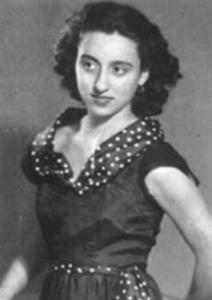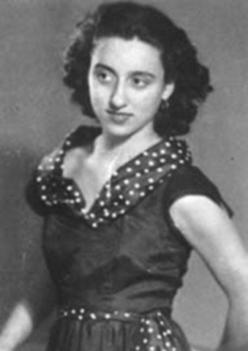Introduction
Without wishing to be an apologist for Lebanon, it is nevertheless indisputable that in providing space for multiple communities to co-exist, it has been a cultural laboratory whose productivity never ceases to surprise observers. Ziad Doueiry's recent film, 'The insult', premièred at the Venice Film Festival in 2017 and nominated for an Oscar in March 2018, illustrates this. Like its neighbours, Lebanon, formerly part of the Ottoman Empire, then ruled by the French, is a young country (1920) in search of a national identity. In the course of its history it has endured much religious conflict[1] which has affected its development as a nation state for good and ill. This complex situation brought about a cultural proliferation, especially at the end of the 1950's. The trio consisting of Fayrouz[2] and the Rahbani brothers[3] are seen as a national symbol in this quest for identity. As Henri Zoghaib said in his biography of the Rahbani brothers: “....In fact it is not just the Rahbani brothers always grouped together, but also the trio Rahbani-Fayrouz. And it is this distinct formula which has given a musical identity not just to the Lebanese cultural scene but much more widely, to the Arab musical scene. And the contribution of this trio is so critical it already constitutes a patrimony which will leave a lasting impression on the musical and theatrical legacy in Lebanon and elsewhere.”
Fayrouz (literally, 'Turquoise') [5]is the stage name of Nouhad Haddad, born in 1934 in Lebanon. At the end of the 1940's, she was spotted by Halim el Roumi, director of Radio Lebanon, the Near East radio station (Mahattat el Chark el Adna), who auditioned her as a solo artist. Following her stunning interpretation of two songs from Cairo (Ya Nour Fouadi / Oh fire of my heart by Asmahan[6] and Zahratan fi Khayali / A flower in my imagination by Farid el Attrache[7] ), she was engaged as a soloist....Halim el Roumi composed songs for her and she began to be appreciated by listeners. In spite of this breakthrough, Nouhad Haddad did not change her lifestyle, which was unusual in that milieu: for a singer of that era, she was very reserved and serious. The man who made her a real 'diva' also worked in radio; he was called Assi Rahbani. It was Halim el Roumi who introduced him to Fayrouz. This meeting was to have a huge impact on the destiny of Fayroux and the Rahbani brothers and to contribute to a profound renovation of eastern song. Ziadé Lamia, Fayrouz' biographer, says that the Rahbani brothers “found in Nouhad the indispensable instrument of their search, the one to reveal their genius, the interpreter of their revolution.” This trio brought a new musical style to the Lebanese scene: “a blend of traditional Arab music, Lebanese folklore, and Western Latin-American influences.” Assi married Fayrouz in 1955 and the collaboration intensified. |
This collaboration, almost a fusion, with her husband was completed by her brother in law. Thus Fayrouz's career was launched. She became one of the symbols of Lebanon against a background of instability, and today is part of her cultural patrimony. Through her collaboration with many Lebanese authors and poets – especially the Rahbani brothers – she helped to build Lebanese unity with active patriotism which determinedly avoided any association with a particular political camp or community.
Can singing be a reproach to God? Or is singing of the eternal themes a celebration of them as can be understood by Psalm 104: “I will sing to the LORD as long as I live, all my life I will sing psalms to my God” (Psalm 104, 33)? In the history of religions, one can say that singing is important when it allows for a message to be heard, and at times to elevate the soul. The power of song can prove to be significant because it touches the heart, the soul, and the spirit of individuals (in great number). In the Christian tradition, for example, the liturgy is accompanied by singing. The sound, the vibrations, the melodies....these are some of the factors which bring the feeling of a mystical experience, but the message carried by the songs augment this experience.
If the words of songs transmit a sacred message, or evoke the divine in an irrational way, with a faith or passion that cannot be described, one may then speak of mystical song....One may therefore speak of song possessing a mystical power. In the case of Fayrouz, it is the interaction between her bewitching voice, the texts, her interpretation and the eastern sound which gives a mystical power to her songs. Having attempted to establish a link between song and mystical power, I will attempt to analyse the place of mysticism through some of the texts of these songs.
The chosen songs:
Ya Sakan el 'ali (Oh heavenly father) , extract from the piece Ayam Fakherdinn (the days of Fakherdinn[8] ) by the Rahbani brothers, Festival of Baalbeck 1966.
Zahrat el Madaen(The holy city), by the Rahbani brothers in collaboration with the poet Said Akl, Festival des Cèdres, 1967.
Sa‘adni Ya nab ‘alnaby‘(May the all-powerful help me (the source of sources), extract of the piece Jbal al Sawwân (The Mountains of Flint), by the Rahbani brothers, Festival of Baalbeck, 1969. Others
GhannaytouMakkatah (I sing for Mecca), ,lyrics by Said Akl, 1963.
Rabbi Sa'altouka bi Esmihina (God, I ask you), lyrics by Rushdi al Maalouf.










